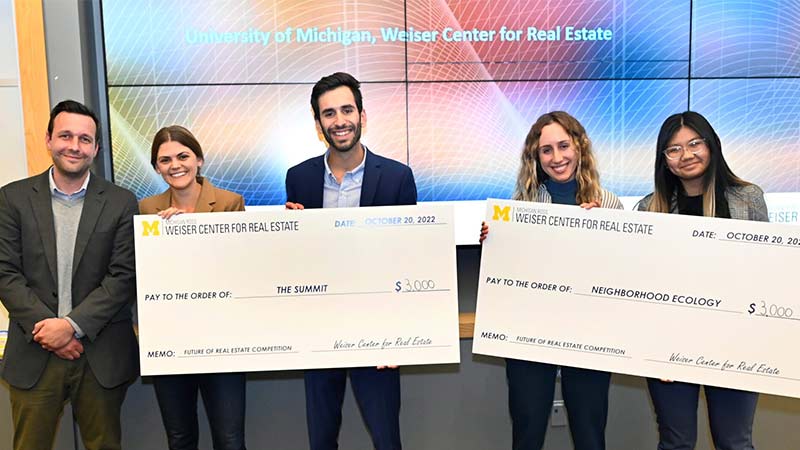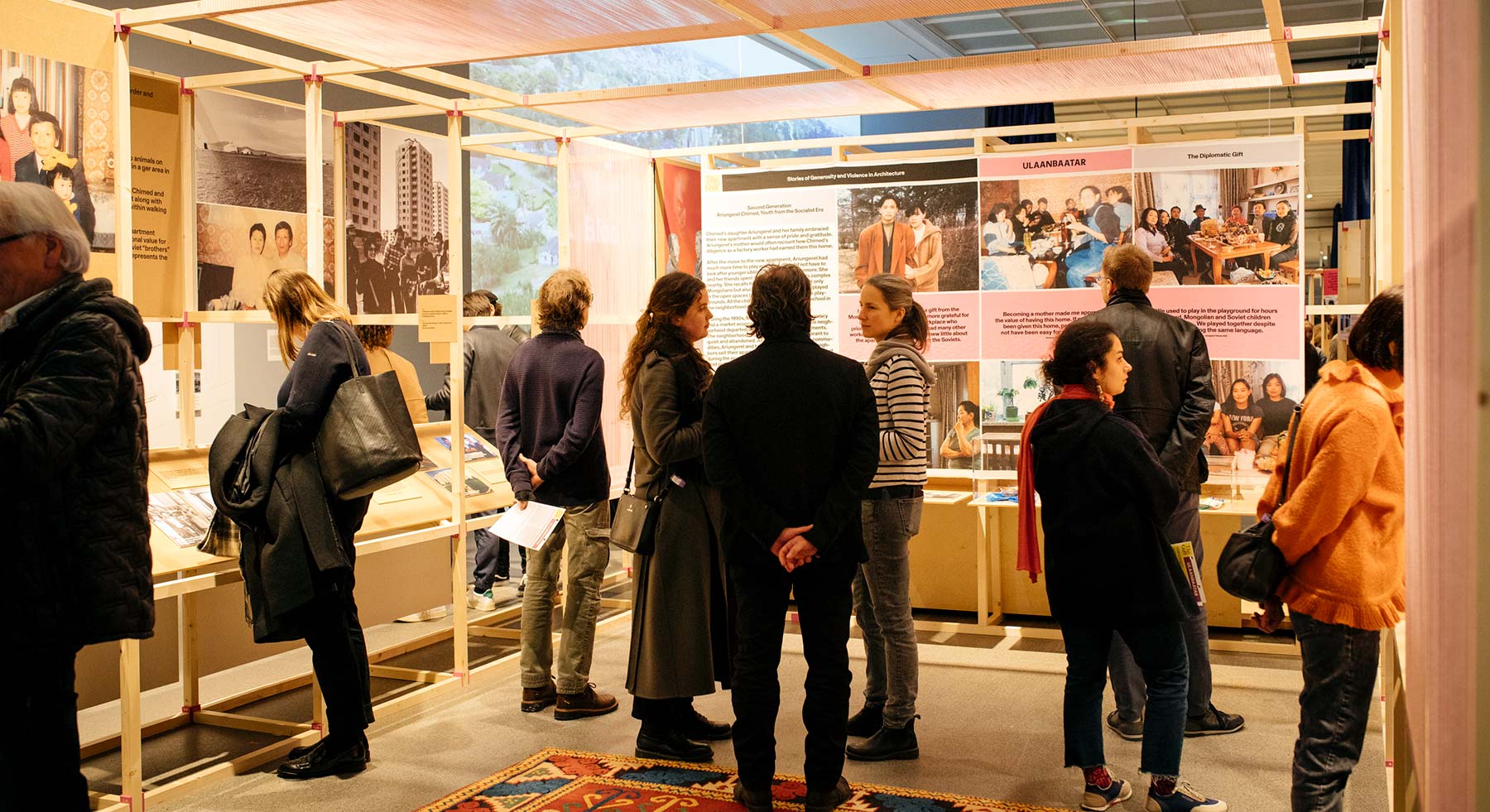Taubman College students Van Nguyen, B.S Arch ’23, Izzy Beshouri, MURP ’24/PitE ’23, Anthony Bui, MURP ’23, and Nikshith Reddy, MArch ’23, were recognized in The Weiser Center for Real Estate’s 2022 Future of Real Estate Competition. This year, the competition asked students to create development proposals centered on sustainability and affordability. Student teams proposed design and financing strategies for realizing these values in Ann Arbor. Winners receive a prize package of over $10,000.
Nguyen and Beshouri took first place among undergraduate teams for their submission, Neighborhood Ecology. Their proposal shifts traditional development focuses from building houses to building community and consists of two co-housing townhomes, a food forest, and warehouses retrofitted to be a myceliation facility and a community center. These spaces create community and climate resilience through their open co-housing arrangement, using social cohesion and storytelling to encourage connections and build a sense of shared ownership.
“As my teammate, Izzy Beshouri, and I navigated through the project prompt, it became very evident to us that we wanted to create a proposal that was deeply rooted in community-led climate resilience, which eventually paved the way to our co-Housing vision, Neighborhood Ecology,” said Nguyen, “It is incredible to see how our casual brainstorming transformed into this cohesive idea for the future of Ann Arbor housing and even more incredible to witness how it was received and welcomed by the judges’ panel. Our vision is that real estate’s future lies not only in building houses but in building community.”
Bui, with teammates Sophie Fitchett, MBA ’24, Chelsea Gaylord, MPP ’23, and Gabe Wingert, MEng ’23, received first place among graduate teams for The Summit. The development prioritizes inclusivity, creating a living space for all ages, incomes, and household sizes and fostering the growth of an intergenerational community. It takes advantage of nearby greenspaces and trails to encourage neighborhood activity and incorporates various sustainable design methods to promote a diverse, resilient community.
“I’m grateful for the opportunity to apply what I’ve learned to the Future of Real Estate Competition. The competition directly aligns with my goals of making opportunities in urban areas accessible to all and has only strengthened my desire to create equitable cities,” said Bui. “I’m also thankful to have an amazing and dedicated team because our individual perspectives and combined knowledge created a viable solution to Ann Arbor’s growing community problems of affordable housing and climate change.”
Reddy received third place in the graduate competition for his proposal, Huron Trailside Apartments. His proposal plans to achieve carbon neutrality through electrification, carbon sequestration, and renewable energy solutions while employing a passive house strategy for the building design. A central courtyard through the building connects with a nearby trail, promoting biodiversity, communal engagement, and non-motorized transit.
As part of the Stephen M. Ross School of Business, the Weiser Center for Real Estate aims to prepare the next generation of real estate professionals with the tools to make a positive and equitable impact in built environments. The Future of Real Estate Competition reflects the Center’s interdisciplinary values and had participants representing over 20 different academic disciplines across various U-M schools and colleges.





